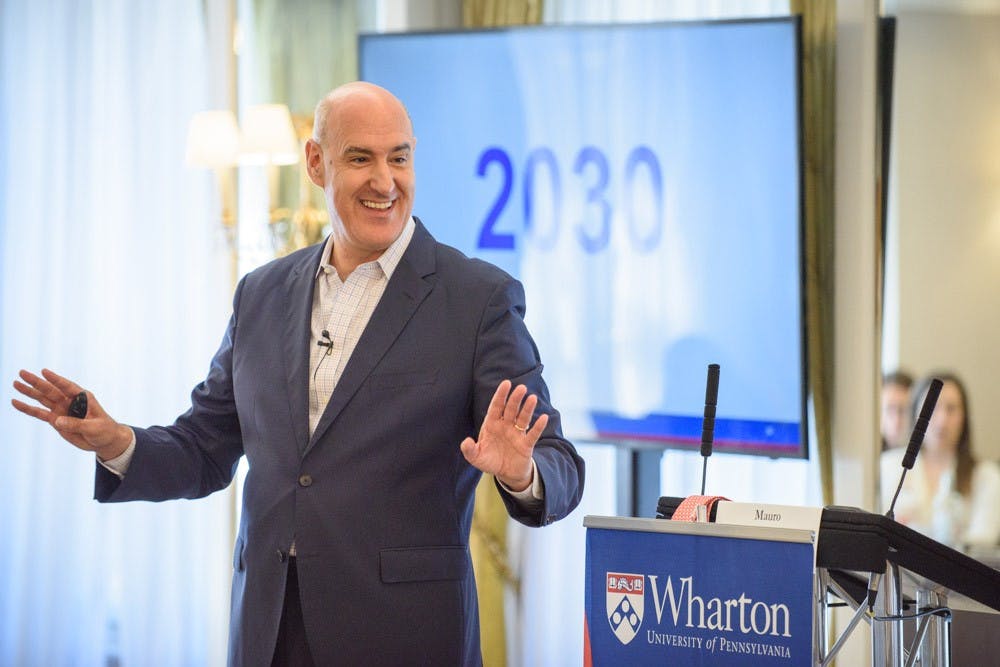Wharton Management Professor Mauro Guillén published a new book predicting drastic demographic, economic, and technological global changes, partly aided by the pandemic, before the year 2030.
Guillén released “2030: How Today’s Trends Will Collide and Reshape the Future of Everything” on Aug. 25. In the book, Guillén predicts that automation will revolutionize industries, women will own a larger share of global wealth than men, and population aging will cause grandparents to outnumber grandchildren.
After teaching the 2,400-person Wharton course on economic consequences of the COVID-19 pandemic last spring, Guillén said he sensed a pervasive anxiety about the post-pandemic future from his students in that class and others. He said this student feedback motivated him to write a book to help students and adults alike make sense of the rapidly changing world.
Engineering sophomore Sharon Kuo, who took Guillén coronavirus class last spring, said she appreciated the unique opportunity to learn about the global impacts of the pandemic.
Guillén said he believes the pandemic will accelerate several of the trends addressed in his book, including population aging and the widespread adoption of technology in education.
“This is the most important message right now: I think the future is coming much faster than we thought,” Guillén said.
Guillén's book has garnered praise from many of his Penn colleagues, including fellow professors and bestselling authors Angela Duckworth and Adam Grant.
Many of the future trends discussed in the book are applicable to higher education, Guillén said. He predicts an increase in women representation in the science and engineering fields, along with increased representation of minorities and underrepresented groups in student populations at colleges across the globe.
RELATED:
Penn instructor releases book analyzing successful outsider campaigns in Phila. elections
Penn professor organizes nationwide strike for academics against police violence
Guillén also said he believes that many people will look to return to school at multiple points throughout their lives in order to adapt to the changing economy, citing the immense potential of technology to provide educational opportunities for adults in their forties and fifties.
He also said he believes classes like his COVID-19 course from the spring semester is the first of a new kind of large, technology-driven course that colleges might use in the future. Guillén believes that colleges will likely offer classes to students who are enrolled at peer institutions, creating a “global buffet” of courses.
“I think what we have to do is instead of thinking of technology in education as a substitute, to think of technology as something that can enhance the learning experience for everyone.”









